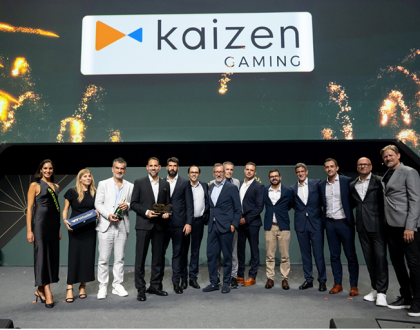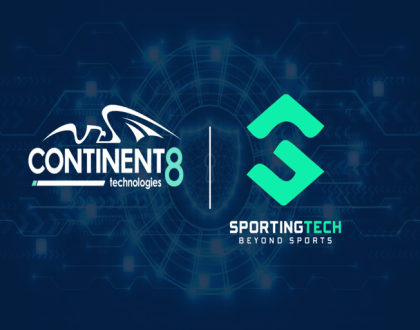iGaming Licenses and Global Expansion

Many companies in the #iGaming industry seek to expand globally to tap into new markets and increase their customer base. This expansion comes with various challenges and opportunities, especially when it comes to obtaining the necessary #licenses to operate in different regions. A crucial aspect of any iGaming company's global expansion strategy is understanding the #regulatory requirements and obtaining the right licenses to ensure compliance and legitimacy in each market.
Understanding iGaming Licenses
The iGaming industry is highly regulated, and obtaining the right license is crucial for operators looking to establish their presence in various markets. Without the necessary license, an operator could face hefty fines or even be shut down for operating illegally. This chapter will explore into the key aspects of iGaming licenses, including the definition, types, legal framework, and the benefits of holding a license.
Definition and Types of Licenses
For iGaming operators, a license is a legal document that authorizes them to offer their services in a specific jurisdiction. There are several types of licenses available, each catering to different aspects of the industry, such as online casino, sports betting, poker, and more. Knowing the distinctions between these licenses is imperative for operators to ensure they comply with the regulations in their target markets.
| License Type | Description |
| Casino License | Allows operators to offer casino games such as slots, table games, and live dealer games. |
| Sports Betting License | Permits operators to accept sports bets on various events and matches. |
| Poker License | Enables operators to host online poker games and tournaments. |
| Bingo License | Authorizes operators to provide online bingo games to players. |
| Lottery License | Allows operators to offer lottery-based games and scratch cards. |
The Legal and Regulatory Framework
Types of iGaming licenses can vary depending on the jurisdiction, with some countries having specific regulations for online gambling activities. Operators must navigate through the complex legal framework to ensure compliance with all the requirements set forth by the regulatory authorities. Another critical aspect of the legal framework is the enforcement of anti-money laundering (AML) and responsible gambling practices to protect players and maintain the integrity of the industry.
Benefits of Holding a License
One of the primary benefits of holding a iGaming license is the ability to operate legally in the target market, ensuring compliance with all the regulations and avoiding any potential legal issues. This legitimacy can enhance the operator's reputation and build trust among players and partners. Additionally, holding a license can provide access to payment solutions and banking services, making it easier to process transactions and cater to the needs of customers.
The Licensing Process
Eligibility Criteria for Obtaining a License
Little is more crucial in the iGaming industry than obtaining the necessary licenses to operate legally and securely in various markets across the globe. To be eligible for an iGaming license, companies must meet a set of stringent criteria set forth by the regulatory bodies of each respective jurisdiction. These criteria typically include financial stability, integrity, transparency, and a commitment to responsible gaming practices. Additionally, applicants may be required to demonstrate their technical capabilities, security measures, and compliance with anti-money laundering regulations.
Documentation and Due Diligence
When applying for an iGaming license, thorough documentation and due diligence are paramount. License applicants are usually required to submit a detailed application along with a comprehensive business plan, financial statements, ownership information, gaming software details, and compliance procedures. Regulatory authorities conduct extensive background checks on key personnel and shareholders to ensure that only reputable individuals and companies are granted licenses. The due diligence process may also involve site inspections, interviews with stakeholders, and investigations into the applicant's criminal history.
It is important for companies seeking iGaming licenses to anticipate and prepare for the rigorous documentation and due diligence requirements imposed by regulatory authorities. Failure to provide accurate information or meet the standards set by the licensing jurisdiction can result in significant delays or even rejection of the license application.
Costs and Financial Considerations
Obtaining an iGaming license can be a costly endeavor, requiring companies to cover application fees, compliance costs, and ongoing regulatory fees. The exact costs vary depending on the jurisdiction and type of license sought, with some countries imposing higher fees than others. Additionally, license holders may be required to maintain minimum capital reserves to ensure financial stability and the ability to cover player winnings.
With careful financial planning and a thorough understanding of the costs involved, companies can navigate the licensing process more effectively and allocate resources appropriately.
Top iGaming Licensing Jurisdictions
Malta Gaming Authority (MGA)
Your iGaming business can benefit greatly from obtaining a license from the Malta Gaming Authority (MGA). The MGA is known for its stringent regulations that ensure player protection and industry transparency. Operating under the Malta Gaming Act, the MGA provides a solid legal framework for iGaming companies to thrive in a safe and secure environment. By choosing the MGA license, you can gain access to the European market and build trust among players globally.
United Kingdom Gambling Commission (UKGC)
United Kingdom Gambling Commission (UKGC) is a respected regulatory body with high standards for iGaming operators. Obtaining a license from the UKGC demonstrates your commitment to fair play, responsible gaming, and anti-money laundering practices. The UKGC license is prestigious and valued in the industry, opening doors to the lucrative UK market and enhancing your credibility as a reputable online gambling provider.
The United Kingdom Gambling Commission (UKGC) is known for its strict enforcement of regulations, ensuring that license holders adhere to the highest standards of operation. With a UKGC license, operators are required to meet stringent compliance requirements and undergo regular audits to maintain their status in good standing.
Gibraltar Regulatory Authority (GRA)
One of the top iGaming licensing jurisdictions, the Gibraltar Regulatory Authority (GRA) offers a reputable license for online gambling operators. Choosing the GRA license means gaining access to a well-regulated market and enjoying tax benefits in a business-friendly environment. The GRA is known for its efficiency in processing license applications and providing support to license holders.
It's crucial to note that the GRA license is recognized in various jurisdictions around the world, giving your iGaming business credibility and flexibility for global expansion. By complying with GRA regulations, operators can operate with confidence and integrity, meeting the high standards set by this reputable gaming authority.
Curacao eGaming
Licensing your iGaming business with Curacao eGaming is a popular choice among operators seeking a flexible licensing option. Curacao eGaming offers a straightforward licensing process and favorable tax rates, making it an attractive jurisdiction for startups and established companies alike. While the Curacao license may not have the same level of strict regulations as other jurisdictions, it still provides a reliable framework for operating an online gambling platform.
iGaming operators opting for a Curacao eGaming license should ensure they meet the compliance standards set by the jurisdiction to maintain their license validity. While the Curacao license offers certain advantages, operators should be aware of the potential risks and challenges associated with operating under this regulatory authority.
iGaming Global Expansion Strategies
Market Research and Selection
The key to successful iGaming global expansion is thorough market research and strategic selection of target markets. The iGaming industry is highly regulated, and each country has its unique set of laws and requirements that must be met to operate legally. By conducting in-depth market research, iGaming companies can identify lucrative opportunities and potential risks in various regions.
Cultural and Geographical Considerations
Cultural and geographical factors play a crucial role in the success of iGaming expansion efforts. Understanding the cultural preferences, gaming habits, and regulatory environment of a target market is important for tailoring products and marketing strategies to resonate with local players. It is also important to consider geographical factors such as time zones, languages, and payment preferences to provide a seamless gaming experience.
Plus, establishing a strong local presence through partnerships with local operators can help iGaming companies navigate complex regulatory landscapes, gain insights into local market dynamics, and build trust with players. Partnering with local operators can also provide access to established customer bases and marketing channels, accelerating market penetration and growth.
Partnering with Local Operators
Partnering with local operators is a strategic approach that can offer numerous benefits for iGaming companies looking to expand globally. Local operators often have a deep understanding of the local market, regulatory requirements, and player preferences, which can be invaluable for navigating the complexities of operating in a new region.
Challenges in Global Expansion
For iGaming companies looking to expand globally, numerous challenges must be addressed. From diverse regulatory requirements to anti-money laundering concerns, and technological hurdles, navigating the complexities of international markets can be a daunting task.
Dealing with Diverse Regulatory Requirements
Regulatory requirements vary significantly from one country to another, posing a major challenge for iGaming companies seeking global expansion. From licensing procedures to compliance standards, understanding and adhering to the diverse regulations in each market is crucial for success. Failure to comply with these regulations can result in hefty fines, reputational damage, or even complete suspension of operations in certain regions.
Anti-Money Laundering (AML) and Compliance Issues
Laundering money through iGaming platforms is a real concern for global regulators. To combat this, iGaming companies must implement robust anti-money laundering (AML) measures and ensure compliance with international financial regulations. This includes customer due diligence, transaction monitoring, and reporting suspicious activities to relevant authorities.
This necessitates a strong commitment to compliance and investment in sophisticated technologies to detect and prevent money laundering activities effectively.
Technological and Operational Hurdles
Global expansion also brings about technological and operational challenges for iGaming companies. From adapting platforms to different languages and currencies to ensuring seamless payment processing and customer support across diverse markets, the technical complexities can be overwhelming. Furthermore, cybersecurity threats and data privacy regulations add another layer of complexity to the operational aspects of global expansion.
Plus, staying ahead of technological advancements and innovations is crucial for iGaming companies to remain competitive in the ever-evolving global market.
The Future of iGaming Licenses
Trends Shaping the Global iGaming Landscape
Keep an eye on the trends that are shaping the global iGaming landscape. One of the key trends to watch is the increasing shift towards online and mobile gaming. As more players turn to digital platforms for their gaming needs, the demand for iGaming licenses is skyrocketing. This trend is driving regulatory bodies to adapt and develop new frameworks to accommodate this growing sector.
Innovations in Licensing and Regulation
To stay ahead in the ever-evolving iGaming industry, operators are exploring new innovations in licensing and regulation. From blockchain technology for secure transactions to AI-powered tools for fraud detection, the industry is embracing cutting-edge solutions to enhance player protection and ensure regulatory compliance.
iGaming operators are also exploring the potential of virtual reality (VR) and augmented reality (AR) in creating immersive gaming experiences while adhering to licensing and regulatory requirements. These technologies could revolutionize the way players interact with online casinos and further shape the future of iGaming licenses.
The Impact of Emerging Markets
iGaming is expanding rapidly into emerging markets, presenting both opportunities and challenges for operators. Countries in Asia, Africa, and Latin America are witnessing a surge in demand for online gaming, attracting investments from established iGaming companies. However, these markets come with their own set of regulations and cultural considerations that operators need to navigate.
Shaping the iGaming industry in emerging markets requires a deep understanding of the local nuances and a flexible approach to compliance. While the potential for growth is immense, operators must tread carefully to build sustainable operations and establish strong partnerships with local regulators and stakeholders.
Summing up
Hence, obtaining iGaming licenses is crucial for online gambling operators looking to expand globally. These licenses not only ensure regulatory compliance but also enhance credibility and trust among players. By acquiring licenses from reputable jurisdictions, operators can access new markets, attract more customers, and establish a strong presence in the competitive iGaming industry.
To wrap things up, iGaming licenses serve as a gateway to global expansion in the online gambling sector. Operators must navigate the complex regulatory landscape, meet stringent requirements, and maintain transparency to secure licenses and unlock opportunities in diverse markets worldwide. With the right licenses in place, operators can build a sustainable and successful iGaming business on a global scale.
FAQs
What is an iGaming license?
An iGaming license is a legal authorization that allows operators to offer online gambling services in specific jurisdictions, ensuring compliance with local regulations.
Why is obtaining an iGaming license important?
Obtaining an iGaming license is crucial for legal operation, avoiding fines, and building trust with players and partners by demonstrating regulatory compliance.
What are the types of iGaming licenses available?
Types include casino, sports betting, poker, bingo, and lottery licenses, each tailored to different aspects of the online gambling industry.
What are the benefits of holding an iGaming license?
Benefits include legal operation, access to payment solutions, and enhancing credibility and reputation in the global market.
What challenges do companies face in obtaining iGaming licenses?
Challenges include navigating diverse regulatory requirements, conducting thorough due diligence, and managing the financial costs involved.
Recommended Posts

Kaizen Gaming’s Success at SBC Awards 2024
October 4, 2024

Sportingtech Boosts Security with Continent 8
October 4, 2024

Hidden Treasures of Rome Slot by Swintt
October 4, 2024




